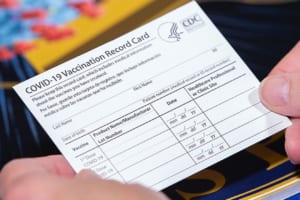On September 16, 2024, the U.S. Department of State (“DOS”) launched a new version of the Smart Traveler Enrollment Program (“STEP”). The STEP is a free service allowing U.S. citizens and nationals to enroll their trip abroad so DOS can accurately and quickly contact them in case of emergency. Existing U.S. visa applicants must re-enroll in the new system at step.state.gov to continue receiving alerts.
The new STEP platform allows citizens to use a login.gov account to customize their subscriptions and receive country-specific email alerts during the timeframe of their choice. Applicants can enroll multiple trips or locations at once and can modify their subscriptions or un-enroll at any time.
Enrolling in STEP makes it easier for the nearest U.S Embassy or Consulate to contact applicants during an emergency and send safety and security alerts. The DOS strongly encourages all U.S. citizens traveling or living abroad to enroll or re-enroll today to take advantage of new functionality.
Benefits
- Get real time updates about health, weather, safety, and security in the country.
- Plan ahead using information from the local U.S. Embassy or Consulate.
- Help the Embassy or Consulate contact you if there’s an emergency like a natural disaster, civil unrest, or a family emergency.
Actions to Take:
- Visit step.state.gov to enroll in the updated STEP to set your preferences and continue receiving alerts and messages from the nearest U.S. Embassy or Consulate.
- Encourage friends and family traveling or living internationally to enroll in STEP. Travelers may choose to sign up for alerts for individual trips or to receive alerts long-term for specific countries where they or their loved ones are visiting or residing.
- Follow the State Department’s Bureau of Consular Affairs on social media (@travelgov) as well as the nearest U.S. embassy or consulate.
If you have questions about U.S. visas or immigration, please contact us at info@enterlinepartners.com.
ENTERLINE & PARTNERS CONSULTING
Ho Chi Minh City, Vietnam Office
146C7 Nguyen Van Huong St, Thao Dien Ward,
District 2, Thu Duc City
Ho Chi Minh City, Vietnam / Tel: +84 933 301 488
Email: info@enterlinepartners.com
Facebook: Enterline & Partners – Dịch vụ Thị thực và Định cư Hoa Kỳ
YouTube: @EnterlineAndPartnersConsulting
Website: http://enterlinepartners.com
Manila, Philippines Office
LKG Tower 37th Floor, 6801 Ayala Avenue, Makati City, Philippines 1226 / Tel: +63 917 543 7926
Email: info@enterlinepartners.com
Facebook: Enterline and Partners Philippines
Website: https://enterlinepartners.com/language/en/welcome/
Copyright 2024. This article is for information purposes only and does not constitute legal advice. This article may be changed with or without notice. The opinions expressed in this article are those of Enterline and Partners only.








